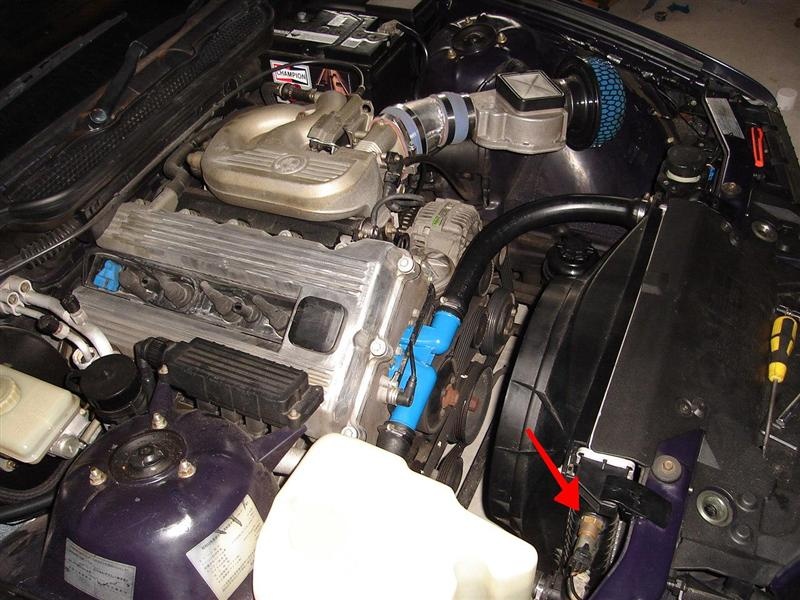Maintaining Your BMW 318ti: Essential Tips for Durability
Maintaining Your BMW 318ti: Essential Tips for Durability
Blog Article
Key Attributes to Seek When Acquiring an Engine for Automotive Applications
When taking into consideration the purchase of an engine for auto applications, several crucial attributes require careful analysis to guarantee optimal performance and functionality. From power and performance capacities to sustain efficiency, resilience, and adherence to emissions requirements, each facet plays a vital duty in determining the engine's suitability for certain vehicle requirements.
Power and Efficiency
When choosing a vehicle engine, buyers prioritize power and performance to make sure ideal driving experience and performance. A well-performing engine not only delivers power successfully but additionally operates efficiently throughout various speed arrays and driving problems.
Purchasers commonly think about the engine's torque result alongside its power ranking. Torque, gauged in pound-feet (lb-ft) or Newton-meters (Nm), mirrors the engine's rotational pressure, affecting the automobile's capacity to tow, climb inclines, and increase from standstill. An equilibrium in between power and torque is important for attaining a responsive and versatile driving experience. Furthermore, elements such as engine displacement, turbocharging, and crossbreed modern technologies play substantial functions in enhancing both power and performance degrees. Eventually, choosing an engine that offers a potent mix of power and performance ensures a satisfying and reliable driving experience. bmw 318ti.
Fuel Performance
Optimizing gas effectiveness is a critical consideration for customers when reviewing vehicle engine alternatives. Modern engines with attributes like straight gas shot, turbocharging, and variable valve timing can substantially boost gas effectiveness by enhancing combustion procedures and reducing energy loss.

Sturdiness and Dependability
Accomplishing durable efficiency and trustworthy procedure is crucial for consumers assessing the resilience and dependability of vehicle engines. When thinking about an engine for automobile applications, sturdiness describes the engine's ability to withstand wear, stress, and harsh operating problems over an extended period. Integrity, on the various other hand, indicates that the engine can constantly perform its designated function without unexpected failures or failures.
Consumers must look for engines constructed with high-grade materials and accurate engineering to make sure long life. Components such as pistons, crankshafts, and bearings must be long lasting to manage the engine's power result without premature wear. Additionally, engines furnished with sophisticated air conditioning systems, efficient lubrication, and robust purification mechanisms tend to exhibit greater degrees of reliability.
Routine maintenance and adherence to manufacturer referrals are likewise crucial consider maintaining an engine's durability and integrity. By following maintenance schedules, using recommended fluids, and dealing with any kind of concerns without delay, customers can make the most of the life expectancy and performance of their automotive engines. Eventually, prioritizing resilience and reliability in engine selection can lead to an extra enjoyable possession experience with fewer unforeseen disturbances.
Emissions Compliance
Guaranteeing compliance with exhausts guidelines is an essential element of examining auto engines for eco conscious consumers. With boosting worries regarding air high quality and environmental impact, stringent emissions standards have been established around go the world to decrease hazardous pollutants launched right into the atmosphere. When acquiring an engine for automobile applications, it is crucial to consider its emissions conformity to minimize the carbon impact and follow legal needs.
Modern engines are furnished with innovative discharge control innovations such as catalytic converters, exhaust gas recirculation (EGR) systems, and careful catalytic reduction (SCR) to minimize harmful exhaust gases like nitrogen oxides (NOx), carbon monoxide gas (CARBON MONOXIDE), and hydrocarbons (HC) These systems play a vital role in making certain that the engine fulfills the defined exhausts standards and operates within acceptable limitations.

Cost-effectiveness
When thinking about automobile engine purchases, assessing cost-effectiveness is critical for customers seeking both efficiency and value. Cost-effectiveness in engine procurement includes greater than simply the preliminary acquisition cost. It incorporates the overall expenditures connected to maintenance, gas intake, and prospective repair services over the engine's life expectancy. Choosing for an engine that uses a balance in between upfront costs and lasting savings can cause substantial benefits for the consumer.
One trick aspect of cost-effectiveness is gas efficiency. Engines that are created to make the most of fuel economic situation can result in considerable financial savings in time, especially for individuals who drive often or over lengthy distances. Additionally, taking into consideration the availability and price of extra parts and servicing can add visite site to the overall cost-effectiveness of his response an engine. Guaranteeing that maintenance and fixings are affordable and available can avoid unforeseen monetary problems down the line.

Conclusion
Finally, when purchasing an engine for automobile applications, it is critical to think about crucial features such as power and performance, fuel toughness, reliability and efficiency, discharges conformity, and cost-effectiveness. These elements are essential in guaranteeing that the engine satisfies the demands of the vehicle and runs efficiently in different driving conditions - bmw 318ti. Making a notified choice based upon these criteria will inevitably bring about a effective and effective automotive engine purchase
From power and efficiency capacities to fuel adherence, efficiency, and longevity to emissions standards, each aspect plays an essential role in determining the engine's viability for details automobile demands. Engines created to run on different fuels such as electric power, hybrid systems, or biofuels can supply enhanced gas economic situation and reduced emissions compared to traditional fuel or diesel engines. Customers should carefully take into consideration the fuel effectiveness scores and innovations integrated right into automobile engines to make educated purchasing decisions that line up with their concerns for expense financial savings and sustainability.
When taking into consideration an engine for automotive applications, sturdiness refers to the engine's ability to endure wear, stress and anxiety, and extreme operating conditions over a prolonged period.In conclusion, when acquiring an engine for vehicle applications, it is vital to think about vital functions such as power and efficiency, gas sturdiness, dependability and effectiveness, emissions conformity, and cost-effectiveness.
Report this page